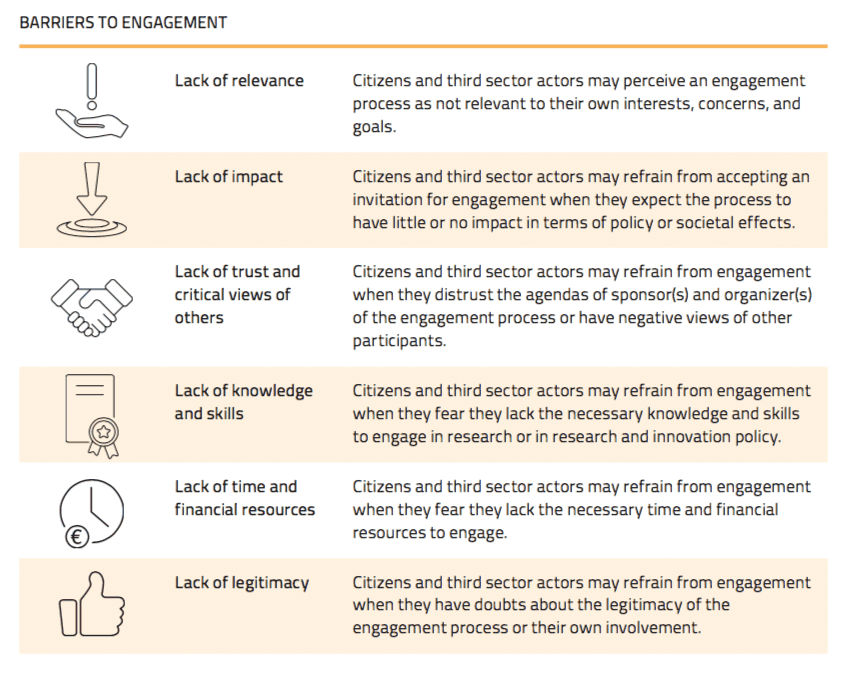The PROSO Support Tool offers information and inspiration to develop policies and practices that encourage the engagement of citizens and third sector actors in publicly-funded research and in research and innovation policy in the European Union. In that sense it is a support tool for putting Responsible Research and Innovation (RRI) into practice.
Its main target groups are policy makers and governmental agencies, research funding organizations and research councils, research organizations, other engagement performing organizations, and third sector actors at national and European Union levels. These actors can make valuable contributions to promoting societal engagement in research and innovation.
LOWERING BARRIERS
Each attempt at initiating, organizing or promoting societal engagement occurs in a unique context. This includes a complex web of factors that can prevent, hamper or enable engagement. Also, what makes engagement a success varies, depending on the specific rationales and goals of engagement in a given case and context.
PROSO has found a number of factors that can negatively affect the willingness of citizens and third sector actors to get involved with societal engagement in research and in research and innovation policy. We refer to these factors as barriers to societal engagement. We have identified six key barriers: lack of relevance; lack of impact; lack of trust and critical views of others; lack of knowledge and skills; lack of time and finances; and lack of legitimacy.

The selection of barriers is a result of our empirical research mainly into the views of citizens and third sector actors, but also researchers, research funders, and policy makers, of what hinders or encourages societal engagement. This research has allowed us to gain a deeper understanding of a challenge that several engagement exercises over recent years have shown: citizens and third sector actors need to be actively interested and motivated to engage. Our research was focused on three example research and innovation fields: food and health, nanotechnology, and synthetic biology.
Our own data confirm and build upon several findings derived from the present body of knowledge on societal engagement in research and innovation. Our results also add new insights to current knowledge, among other things, in regard to the important role of issues of trust: trust and preconceived ideas of others can act as strong barriers both to the engagement of third sector actors and citizens.
INNOVATING POLICIES AND PRACTICES
For each barrier the Support Tool presents several policy and practice options. The options are sorted by the types of actor that seem most relevant for taking action, namely policy makers and governmental agencies, research funding organizations and research councils, public and private research organizations and (other) engagement performing organizations, and third sector organizations.
